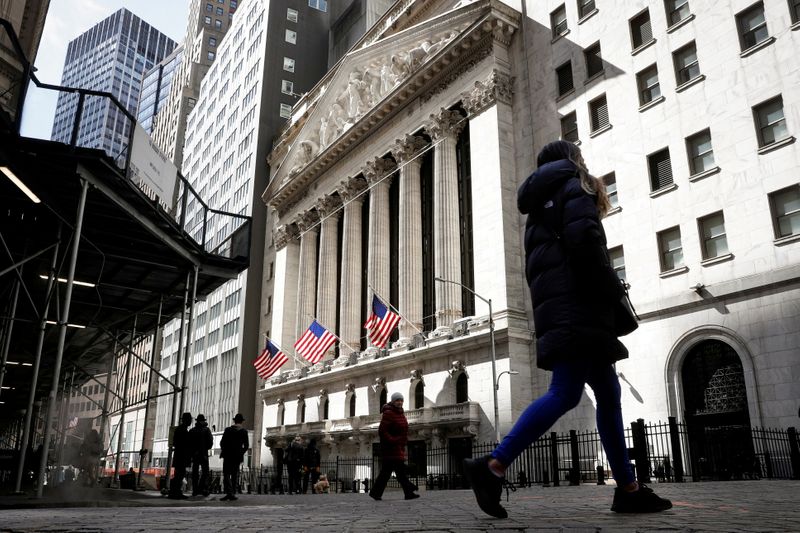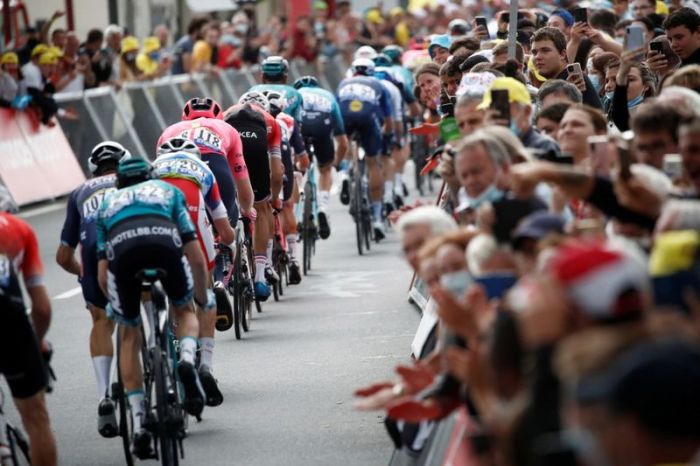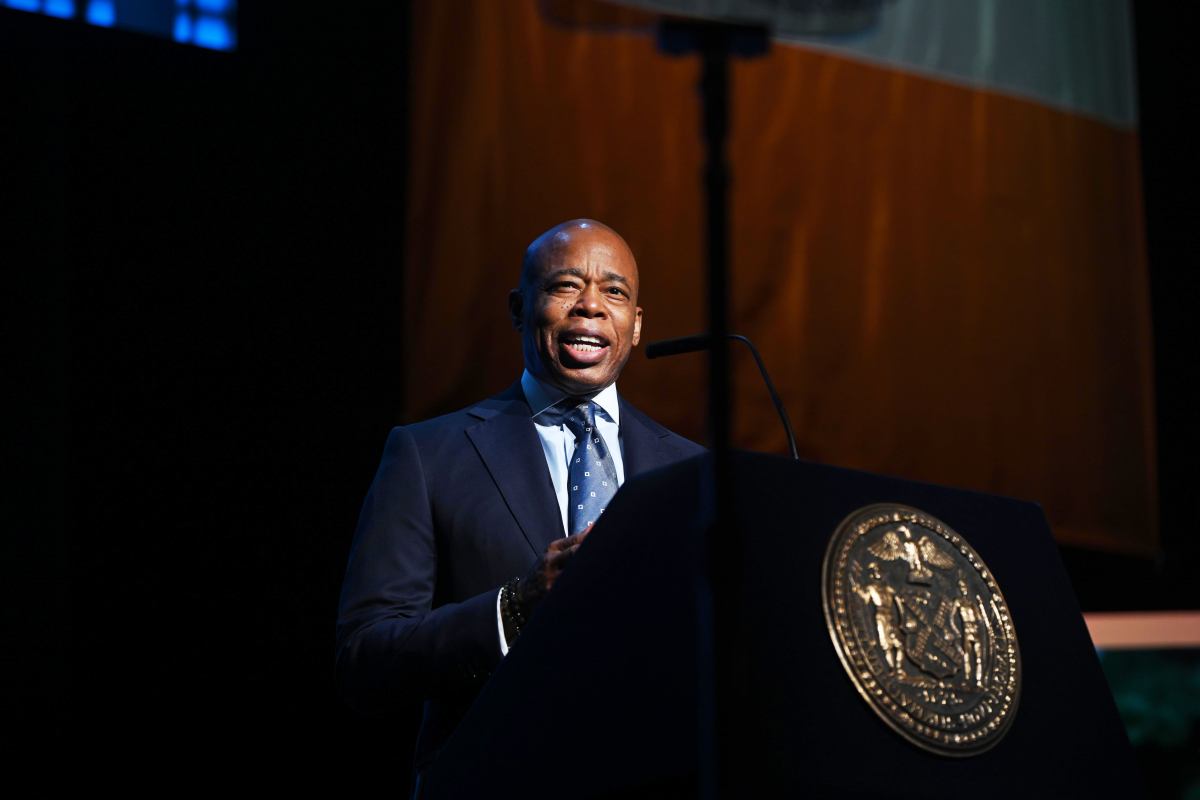By Elizabeth Dilts Marshall
NEW YORK (Reuters) -Global shares retreated from recent highs on Wednesday, as Asian markets grew jittery about a resurgence of COVID-19 cases and Western markets awaited Friday’s U.S. jobs report and what it might mean for monetary policy.
Asset markets have been buoyed over the past year by trillions of dollars in monetary and fiscal stimulus from global central banks responding to the pandemic.
Successful vaccination rollouts have fueled economic recoveries in some places, with consumer confidence in June surging in Europe and the United States.
But fears over a sudden rise in inflation and the highly contagious Delta variant combined with investors taking gains as the first half of the year ended on Wednesday.
The dollar was headed for its biggest monthly rise since November 2016, as investors turned to the safe-haven currency betting that a good Friday jobs report will strengthen the U.S. Federal Reserve’s hawkish tilt.
“We believe markets are reassessing the U.S. outlook as key data this week are expected to show a strong economy as we move into (the second half),” wrote analysts at Brown Brothers Harriman.
“This stands in contrast to many other parts of the world, where lagging vaccine rollouts are allowing the Delta variant to quickly spread, forcing some to go back into lockdown.”
MSCI’s all-country world index, which tracks shares across 50 countries, fell 0.23%. It was still set for a fifth straight month of gains, and for a rise of more than 11% in the first half.
The S&P 500 nabbed its fifth straight record close. The Dow Jones Industrial Average rose 210.22 points, or 0.61%, the S&P 500 gained 5.7 points, or 0.13%, and the Nasdaq Composite dropped 24.38 points, or 0.17%. [.N]
The pan-European STOXX 600 index lost 0.77%. The German DAX fell 159.55, or 1.02%, and London’s FTSE 100 fell 50.08, or 0.71%.
EYES ON PAYROLLS
Data released on Wednesday showed that U.S. private payrolls increased 692,000 jobs in June, more than expected but less than the 886,000 jobs added in May.
Markets stayed focused on the more comprehensive U.S. nonfarm payrolls figures due out Friday. Economists polled by Reuters were expect a gain of 690,000 jobs for June, up from 559,000 in May. But the variation among the 63 estimates was large, ranging from 400,000 to more than a million.
The benchmark 10-year yield rose to yield 1.4426%, from 1.48%
The dollar index, which tracks the greenback versus a basket of six currencies, rose 0.3 points or 0.33%, to 92.349.
Federal Reserve Bank of Dallas President Robert Kaplan said Wednesday he would like the Fed to start reducing its support for the economy before the end of the year.
“With inflation still running hot and the labor market recovery shifting into a lower gear, policymakers at the Federal Reserve are no doubt starting to get antsy,” said Matthew Weller, global head of market research at FOREX.com and City Index.
The euro was down 0.37% to $1.1851, while Britain’s pound was last trading at $1.3807, down 0.20% on the day.
The Japanese yen weakened 0.45% versus the greenback to 111.03 per dollar.
MSCI’s broadest index of Asia-Pacific shares outside Japan closed 0.12% lower, while Japan’s Nikkei lost 0.07%. Chinese blue chips added 0.65%.
Indonesia, Malaysia, Thailand and Australia are all battling outbreaks of COVID-19 and tightening restrictions, and Spain and Portugal announced restrictions for unvaccinated British tourists.
Oil prices rose on Wednesday, heading for monthly and quarterly gains, after U.S. crude stockpiles fell for a sixth straight week and an OPEC report foresaw an undersupplied market this year. [O/R]
The Brent crude contract for August, which expired on Wednesday, ended the session up 37 cents, or 0.5% at $75.13 a barrel. The September contract rose 34 cents to settle at $74.62 a barrel. U.S. West Texas Intermediate crude (WTI) settled up 49 cents, or 0.7%, at $73.47 a barrel.
Gold headed for its largest monthly decline since November 2016. Spot gold added 0.2% to $1,765.16 an ounce. U.S. gold futures gained 0.13% to $1,765.10 an ounce. [GOL/]
(Reporting by Carolyn Cohn in London and Elizabeth Dilts Marshall in New York; editing by Kirsten Donovan and Stephen Coates)




























